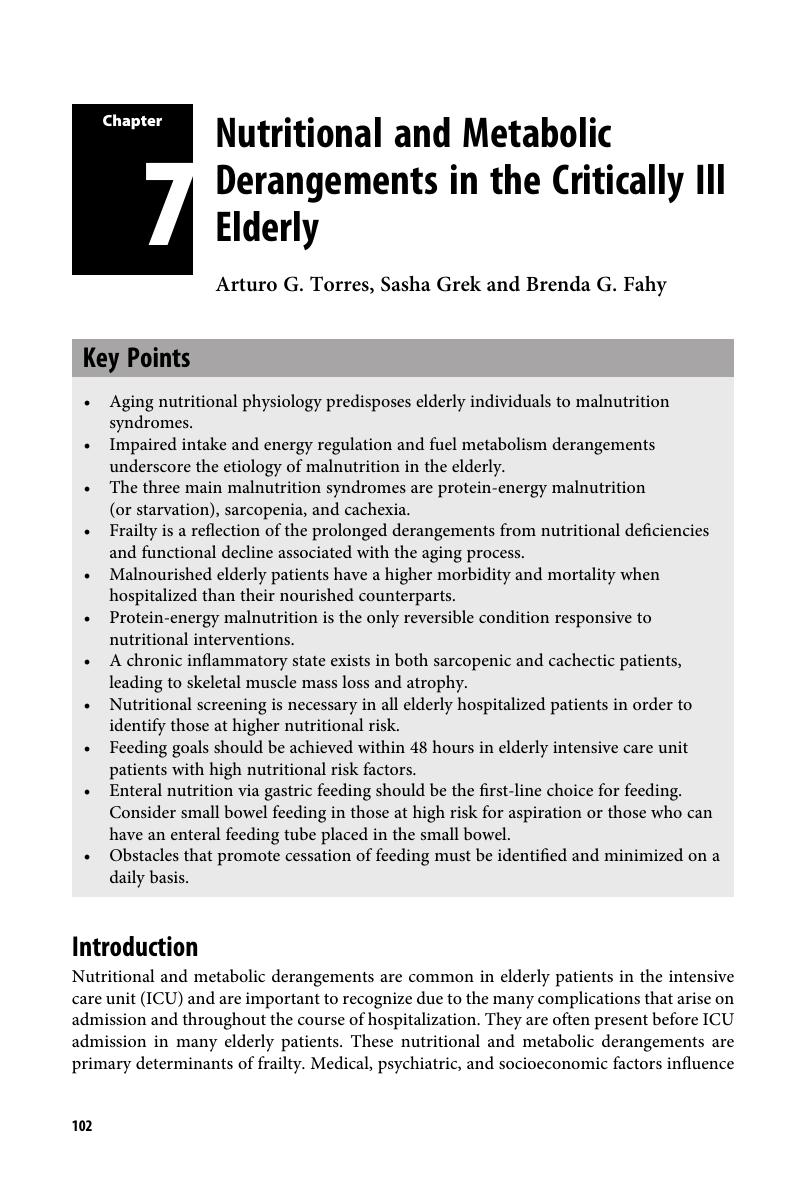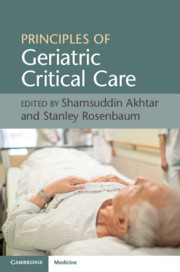Book contents
- Principles of Geriatric Critical Care
- Principles of Geriatric Critical Care
- Copyright page
- Contents
- Contributors
- Preface
- Chapter 1 Epidemiology of Critical Illness in the Elderly
- Chapter 2 Chronic Critical Illness in Geriatric Patients
- Chapter 3 Principles of Geriatric Pharmacotherapy
- Chapter 4 Respiratory Critical Care in the Elderly
- Chapter 5 Neurocognitive Dysfunction and Geriatric Neurocritical Care
- Chapter 6 Geriatric Cardiovascular Critical Care
- Chapter 7 Nutritional and Metabolic Derangements in the Critically Ill Elderly
- Chapter 8 Electrolyte and Renal Disorders in the Critically Ill Elderly
- Chapter 9 Trauma and Musculoskeletal System Dysfunction in the Critically Ill Elderly
- Chapter 10 Immune Response and Infections in the Elderly
- Chapter 11 Transfusion Therapy and Common Hematologic Problems in the Critically Ill Elderly
- Chapter 12 Stress Response to Surgery in the Elderly
- Chapter 13 Perioperative Care of Geriatric Patients at Risk of Developing Critical Illness
- Chapter 14 Ethical Issues: Withdrawing, Withholding, and Futility
- Chapter 15 Geriatric Critical Care Units: Model for Interdisciplinary Approach
- Index
- References
Chapter 7 - Nutritional and Metabolic Derangements in the Critically Ill Elderly
Published online by Cambridge University Press: 13 October 2018
- Principles of Geriatric Critical Care
- Principles of Geriatric Critical Care
- Copyright page
- Contents
- Contributors
- Preface
- Chapter 1 Epidemiology of Critical Illness in the Elderly
- Chapter 2 Chronic Critical Illness in Geriatric Patients
- Chapter 3 Principles of Geriatric Pharmacotherapy
- Chapter 4 Respiratory Critical Care in the Elderly
- Chapter 5 Neurocognitive Dysfunction and Geriatric Neurocritical Care
- Chapter 6 Geriatric Cardiovascular Critical Care
- Chapter 7 Nutritional and Metabolic Derangements in the Critically Ill Elderly
- Chapter 8 Electrolyte and Renal Disorders in the Critically Ill Elderly
- Chapter 9 Trauma and Musculoskeletal System Dysfunction in the Critically Ill Elderly
- Chapter 10 Immune Response and Infections in the Elderly
- Chapter 11 Transfusion Therapy and Common Hematologic Problems in the Critically Ill Elderly
- Chapter 12 Stress Response to Surgery in the Elderly
- Chapter 13 Perioperative Care of Geriatric Patients at Risk of Developing Critical Illness
- Chapter 14 Ethical Issues: Withdrawing, Withholding, and Futility
- Chapter 15 Geriatric Critical Care Units: Model for Interdisciplinary Approach
- Index
- References
Summary

- Type
- Chapter
- Information
- Principles of Geriatric Critical Care , pp. 102 - 113Publisher: Cambridge University PressPrint publication year: 2018



